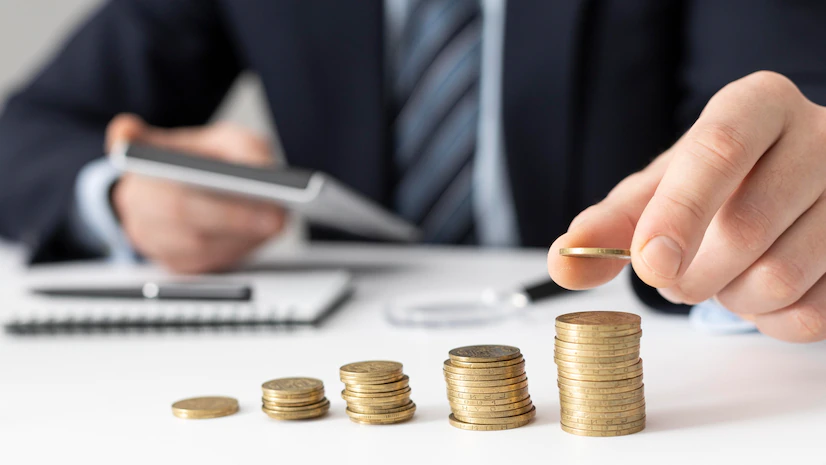Becoming financially healthy means looking at your bank balance and feeling comfortable. If you are stretching your wage from one month to another, then your spending habits may need a second look.
Of course, there are always outside factors that can influence your financial situation. But a lot of the time, simple changes can make a massive difference.
Today, we will walk you through common bad habits that many people are guilty of. We will also explain how to break these habits.
Not Counting The Small Stuff
The life insurance company, Ladder, conducted a study in 2019. It showed that the average American spent $18,000 a year on non-essential items. That’s roughly $50 a day.
The “non-essential” items were things like take-out, coffee, video games, and so on. Non-essential spending is an activity that many people use to feel happy. But, buying yourself clothes, going out with friends, and playing the newest games all cost money.
Before you start getting worried, we aren’t going to suggest staying inside and living a joyless life. Instead, we’ll teach you how to save money, allowing you to spend it on the things you want.
Here is your first trip – when you spend money on non-essentials, you should be counting the costs every time. Treat them like a bill, by making sure you have the finances to pay.
Method To Break The Habit

Counting your everyday spending is a culture change as well as a financial one. To give yourself a healthier bank account, we have a couple of methods for you to try out.
Method One – Review Your Subscriptions
Before setting up the future, you need to look at the past. Go through your bank accounts and look for monthly, weekly, or yearly subscriptions. These are often seen as “forgotten costs,” as you aren’t actively spending the money, and you may not be actively using the subscriptions either. Gaming subscriptions for old consoles, magazines you don’t read, or gym memberships that aren’t touched should all be canceled.
The subscriptions you decide to keep should be factored into your monthly bills. They are a continuous payment and should be treated the same as your rent. Once you include these bills in your monthly planning, you’ll have a better idea of how much spending money you actually have available to you.
Method Two – Pick And Choose Your Time To Splurge
If there are ways for you to save money, make that part of your daily spending culture. For example, you don’t need to eat out every day. Instead, you can make food at home.
Cooking is far cheaper than restaurant food. It’s even cheaper than fast food. To really get everything you can out of your dollar, you can batch cook and put the leftovers in the freezer.
Saving money on food by cooking will allow you to splurge on a restaurant meal when special occasions arrive. It will make the event feel even more memorable. You can use the money you saved from cooking at home, to pay for the meal.
Picking the cheaper option as your daily or “go-to” means when you choose the more expensive choice, you will be able to afford it.
As we said before, being financially healthy doesn’t mean saying “no” to anything joyful. It means giving yourself room in the bank to have fun guilt-free.
Method Three – Use Cash On Days Out
If you have an event coming up and you don’t want to count every cocktail you drink, or every meal you buy, use cash instead. First, figure out how much you can spend for the event, and then take that cash out.
Using cash will give you a visual representation of what you can afford. You can be carefree about how much money you’re spending as you know the cash in your hand is precisely for this event.
When the cash runs out, you know you cannot spend any more as that was your allowance.
This method allows you to spend guilt-free and without having to count the pennies.
Only Living For The Now
The “spend now, worry later” mentality doesn’t allow you to make mistakes. Emergencies can crop up out of nowhere. Your AC could break, your cat could get sick, or your car’s tire might go flat.
If you don’t have an emergency fund to fall back on, these problems could pull you into terrible debt.
Living for the “now” might give you a small bit of joy in the moment, but it can give you a lifetime of trouble when your luck runs out.
Method To Break The Habit
There are two ways to prepare for the financial future, the first is to save, and the second is to open doors. We will talk about saving first, as it’s the easiest concept to understand.
Method One – Saving Money
Ideally, you should have 3 months’ worth of pay in your savings account. This is to prepare for redundancy. If you are let go for any reason, you will have 3 months to find a new job before things start getting tough.
Of course, this concept isn’t easy to achieve. Most people stretch their money to pay for their bills, so getting 3 months’ worth of pay in your account could take years. Because this concept will take a long time to achieve, you should see it as a future goal.
Save what you can, and when you reach the 3-month mark, you can take a breather. To help you save, we have two suggestions.
The first suggestion is to add your savings amount to your bills. If you say you will save $50 a month, and don’t count it towards your free spending money, then you will automatically grow your savings account as time goes on.
The second suggestion is to put every dime you didn’t spend that month into your savings. Imagine sweeping the floor to collect the crumbs. You probably won’t save a lot this way, but every little helps.
You can even combine these two suggestions, creating a third. You could create a small saving goal of $10 a month to make sure you definitely save something. Then when the month ends, any money left over gets added too.
Method Two – Using A Credit Card
This might seem counterintuitive, but using a credit card can help you avoid debts. Although there are great lenders who can help you get a personal loan when you have bad credit, using a credit card can help you open the doors to good credit loans.
When you use a loan or a credit card, you can pay back the money with installments. This means that an expensive holiday will only cost you $100 a month for 20 months instead of $2,000 upfront.
Getting a credit card can allow you to prove your reliability. You do this by spending money on small things like a dinner out or a new jacket, then pay it back at the end of the month. Using your credit card for small and affordable purchases allows you to build a good credit score.
Then when life gives you lemons, lenders will see that you’re a responsible borrower and can give you a good loan with competitive interest rates. A good credit score means a cheaper loan.
Summary
Building up your credit score when you’re in a strong financial situation, will help keep your bank account looking healthy when life gets rough.
To get yourself into a healthy financial situation, you should start by reviewing your monthly payments and getting rid of any unused subscriptions. Then change your daily habits of overspending and pick the cheaper option.
When your daily routine has changed for the better, you can start changing your habits for special days. On the days you don’t want to worry about money, put it all in cash instead. That way, the physical reminder will tell you how much money you have left to spend.
Read Also:




























